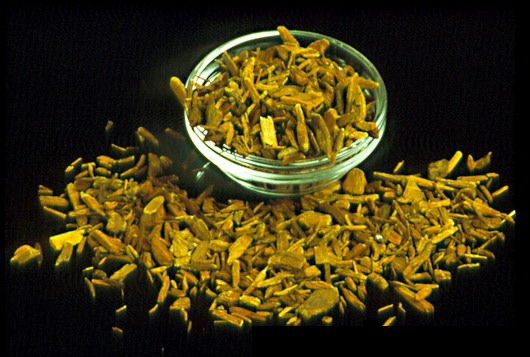Yohimbe is the name of an evergreen tree that is found in Zaire, Cameroon, and Gabon. The bark of yohimbe contains a chemical called yohimbine, which is used to make medicine.
Contents
Uses
- Arouse sexual excitement
- Erectile dysfunction (ED)
- Sexual problems caused by medications for depression called selective-serotonin reuptake inhibitors (SSRIs), and general sexual problems in both men and women.
- Athletic performance
- Weight loss
- Exhaustion
- Chest pain
- High blood pressure
- Low blood pressure that occurs when standing up
- Diabetic nerve pain
- Depression along with certain medications
Benefits
- Yohimbe contains a chemical called yohimbine which can increase blood flow and nerve impulses to the penis or vagina.
- It also helps counteract the sexual side effects of certain medications used for depression.
Cautions
- Yohimbe, taken by mouth, is POSSIBLY UNSAFE. Yohimbe has been linked to reports of severe side effects including irregular or rapid heart beat, kidney failure, seizure, heart attack, and others.
- The primary active ingredient in yohimbe is a drug called yohimbine. This is considered a prescription drug in North America. This drug can be safely used short-term when monitored by a health professional. However, it is not appropriate for unsupervised use due to potentially serious side effects that it can cause.
- Children should not take yohimbe. It is POSSIBLY UNSAFE for children because children appear to be extra sensitive to the harmful effects of yohimbe.
- When taken by mouth in typical doses, yohimbe and the ingredient yohimbine can cause stomach upset, excitation, tremor, sleep problems, anxiety or agitation, high blood pressure, a racing heartbeat, dizziness, stomach problems, drooling, sinus pain, irritability, headache, frequent urination, bloating, rash, nausea, and vomiting.
- Taking high doses can also cause other severe problems, including difficulty breathing, paralysis, very low blood pressure, heart problems, and death. After taking a one-day dose of yohimbine, one person reported an allergic reaction involving fever; chills; listlessness; itchy, scaly skin; progressive kidney failure; and symptoms that looked like the auto-immune disease called lupus.
- Pregnancy or breast-feeding: Yohimbe is LIKELY UNSAFE. Yohimbe might affect the uterus and endanger the pregnancy. It might also poison the unborn child. Don’t take yohimbe if you are pregnant or breast-feeding.
- Bleeding conditions: Taking yohimbe might increase the risk of bleeding in people with bleeding disorders.
- Schizophrenia: Use yohimbe with caution. The yohimbine in yohimbe might make people with schizophrenia psychotic.
- Prostate problems: Use yohimbe with caution. Yohimbe might make the symptoms of BPH (benign prostatic hyperplasia) worse.
- Post-traumatic stress disorder (PTSD): Don’t use yohimbe. There is a report that four individuals with PTSD suffered worse symptoms after using yohimbe.
- Liver disease: Don’t use yohimbe. Liver disease might change the way the body processes yohimbe.
- Kidney disease:’ Don’t use yohimbe. There is a concern that yohimbine might slow or stop the flow of urine.
- High blood pressure or low blood pressure: Don’t use yohimbe. Small amounts of yohimbine can increase blood pressure. Large amounts can cause dangerously low pressure.
- Chest pain or heart disease: Don’t use yohimbe. Yohimbine can seriously harm the heart.
- Anxiety: Don’t use yohimbe. Yohimbine might make anxiety worse.
- Depression: Don’t use yohimbe. Yohimbine might bring out manic-like symptoms in people with bipolar depression or suicidal tendencies in individuals with depression.
- Diabetes: Don’t use yohimbe. Yohimbe might interfere with insulin and other medications used for diabetes and cause low blood sugar.
- Surgery: Yohimbe might increase the risk for bleeding. People who take yohimbe should stop at least 2 weeks before surgery.
Other Names:
11-hydroxy Yohimbine, Alpha Yohimbine HCl, Coryanthe Yohimbe, Corynanthe Johimbe, Corynanthe johimbi, Corynanthe yohimbi, Johimbi, Pausinystalia yohimbe, Pausinystalia johimbe, Yohimbehe, Yohimbehe Cortex, Yohimbine, Yohimbine HCl, Yohimbinum Muriaticum.
References
Source: WebMD, “Yohimbe”, www.webmd.com/vitamins-supplements/

